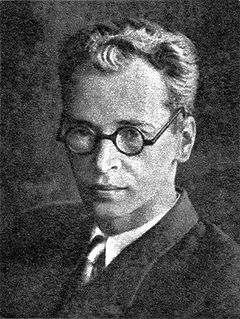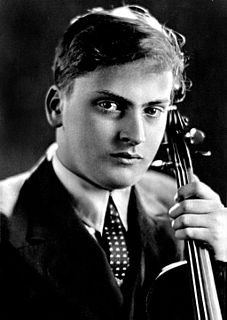A Quote by Paul Washer
To the self-righteous, being judged according to deeds does not seem too alarming but to the man who knows himself the thought is terrifying.
Related Quotes
I've seen men who thought they were brave turn out to be shameful cowards. Other people, who thought they were capable of the utmost self-sacrifice, proved to be hardened egotists. And the opposite, too - cowards doing things which needed toughness and unusual courage..... What does it all boil down to in the end? One must judge a man by what he does, and not by what he thinks he would do. Until a man faces the test, he can deceive himself endlessly.
Not selfishness, but precisely the absence of a self. Look at them. The man who cheats and lies, but preserves a respectable front. He knows himself to be dishonest, but others think he’s honest and he derives his self-respect from that, second-hand. The man who takes credit for an achievement which is not his own. He knows himself to be mediocre, but he’s great in the eyes of others.
Standing on "tip toe", one stands not firmly. Straining in stride, one cannot walk far. Flaunting of deeds, one is unfavorably noticed. Being self-righteous, one is not respected. Boasting of self, one's merit is unrecognized. Glorifying of self, one loses the opportunity for greatness. From the viewpoint of Tao These represent imperfect Te, Valued as are filth or disease.
It is a great good to be given over to the will of God. Then the Lord alone is in the soul, and no other thought, and she prays to God with a pure mind. When the soul is entirely given over to the will of God, then the Lord Himself begins to guide her, and the soul learns directly from God ... A proud man does not with to live according to the will of God. He likes to direct himself, and does not understand that man does not have enough understanding to direct himself without God.
Yet the timeless in you is aware of life's timelessness, And knows that yesterday is but today's memory and tomorrow is today's dream. And that that which sings and contemplates in you is still dwelling within the bounds of that first moment which scattered the stars into space. Who among you does not feel that his power to love is boundless? And yet who does not feel that very love, though boundless, encompassed within the centre of his being, and moving not from love thought to love thought, nor from love deeds to other love deeds? And is not time even as love is, undivided and paceless?
Self-righteousness is unavoidable. You can either be a self-righteous Pharisee where you think you are better than everyone else or you can be a self-righteous pagan who thinks you are better than the Pharisee. If you are a self-righteous person, I could become very self-righteous thinking that you're self-righteous and you think you're so good but I know you're bad. I know I'm bad so that makes me better than you.
Some virtues, when they become fashions, also become exaggerated. Just because nobody likes a judgmental attitude does not mean that there isn't a sort of spoiled, self-righteous hypocrisy when one man obsessively commands other men not to judge without knowing the circumstances without himself, too, knowing their circumstances behind their judgments.
There are three levels of service. The highest level is that of one who performs good deeds the whole day and yet feels that he has not acheived anything. The second level is someone who, though he has not done anything, knows that he has not corrected anything in this world. This is good, and there is hope for him that he might correct his ways. However, someone who is righteous in his own eyes deceived himself all his life; his good deeds will be lost.
The Pope should not flatter himself about his power nor should he rashly glory in his honor and high estate, because the less he is judged by man, the more he is judged by God. Still the less can the Roman Pontiff glory because he can be judged by men, or rather, can be shown to be already judged, if for example he should wither away into heresy; because he who does not believe is already judged, In such a case it should be said of him: 'If salt should lose its savor, it is good for nothing but to be cast out and trampled under foot by men.'
We are not what we seem. We are more than what we seem. The actor knows that. And because the actor knows that hidden inside himself there's a wizard and a king, he also knows that when he's playing himself in his daily life, he's playing a part, he's performing, just as he's performing when he plays a part on stage.





































